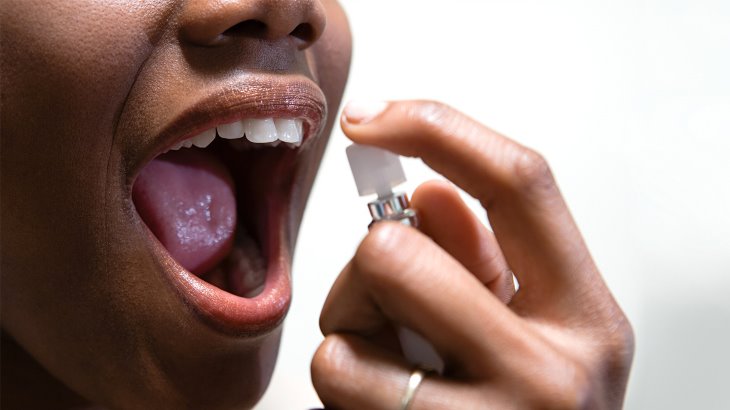Bad breath, or halitosis, is a common issue that can affect anyone. Whether it’s a temporary condition caused by morning breath or something more persistent, bad breath can be embarrassing and detrimental to your social life and self-esteem. Thankfully, the key to preventing bad breath often lies in maintaining good oral hygiene. In this blog, we’ll explore simple yet effective ways to keep your breath fresh and your smile healthy.
The Importance of Oral Hygiene for Fresh Breath
The primary cause of bad breath is bacteria that thrive in your mouth. These bacteria break down food particles and produce sulfur compounds, which are responsible for unpleasant odors. Good oral hygiene helps to remove food debris, reduce plaque buildup, and limit the growth of bacteria, thus preventing bad breath. The right oral care routine can keep your breath fresh and your teeth healthy.
Brush Your Teeth Regularly
The first step in maintaining fresh breath is brushing your teeth at least twice a day. Brushing removes food particles and plaque from your teeth, which can harbor bacteria. Here’s how to brush properly:
- Choose the Right Toothbrush: Use a soft-bristled toothbrush that can effectively clean your teeth without damaging your gums.
- Use Fluoride Toothpaste: Fluoride toothpaste helps to remove plaque and fight cavities, ensuring your teeth remain healthy and clean.
- Brush for Two Minutes: Ensure that you brush for at least two minutes, covering all surfaces of your teeth, including the front, back, and chewing surfaces.
Don’t Skip Your Tongue
Your tongue is another area where bacteria can accumulate and cause bad breath. The surface of your tongue can host bacteria that contribute to foul smells, especially in the back portion. Using a tongue scraper or gently brushing your tongue with your toothbrush can help remove these bacteria.
Floss Daily
Flossing is just as important as brushing when it comes to preventing bad breath. Flossing removes food particles and plaque from between your teeth that your toothbrush cannot reach. When these particles are left behind, they provide a food source for bacteria that can lead to foul-smelling breath.
- Use the Right Technique: Gently slide the floss between your teeth, curving it around each tooth to ensure thorough cleaning.
- Don’t Forget the Back Teeth: Many people forget to floss the back teeth, but these areas are often where bacteria and food particles can accumulate, leading to bad breath.
Use Mouthwash
Mouthwash can help freshen your breath by killing bacteria and neutralizing odors. However, not all mouthwashes are created equal. Choose a mouthwash that contains antibacterial ingredients like chlorhexidine or essential oils. These ingredients will help reduce the bacteria in your mouth, preventing bad breath.
While mouthwash can temporarily mask odors, it should never replace regular brushing and flossing.
Stay Hydrated
Dry mouth, or xerostomia, is another common cause of bad breath. When your mouth doesn’t produce enough saliva, it can’t wash away food particles and bacteria as effectively. Drinking plenty of water throughout the day helps to keep your mouth moist and supports saliva production. Chewing sugar-free gum or sucking on sugar-free candies can also help stimulate saliva production.
Avoid Certain Foods
Certain foods can contribute to bad breath, such as garlic, onions, and spicy dishes. These foods contain compounds that are absorbed into your bloodstream and released through your lungs, resulting in unpleasant odors on your breath. If you’re preparing for a social event or meeting, it might be wise to avoid these foods beforehand.
Additionally, consuming foods like dairy products or sugary snacks can also increase bacteria in your mouth, leading to bad breath. Opting for healthy snacks like fresh fruits and vegetables can help reduce the growth of harmful bacteria and improve your breath.
Quit Smoking
Smoking is one of the leading causes of persistent bad breath. It dries out your mouth, stains your teeth, and contributes to the buildup of bacteria. Moreover, smoking significantly increases your risk of gum disease, which can also cause bad breath. If you’re a smoker, quitting will not only improve your oral health but also make a significant difference in the freshness of your breath.
Regular Dental Checkups
Maintaining a regular schedule of dental checkups is crucial for preventing bad breath. Your dentist can identify any underlying oral health issues, such as gum disease, cavities, or tooth infections, that may be contributing to your bad breath. They can also provide professional cleanings that remove plaque buildup that could lead to odor-causing bacteria.
Your dentist may recommend treatments like scaling and root planing for gum disease, or they may offer advice on how to improve your oral care routine at home. Regular checkups are also an opportunity to discuss any concerns about bad breath with your dentist, who can help pinpoint the cause and offer solutions.
Conclusion:
Bad breath can be a nuisance, but with proper oral hygiene, it is entirely preventable. By brushing, flossing, and using mouthwash regularly, you can eliminate the bacteria that cause bad breath. Staying hydrated, avoiding certain foods, and quitting smoking will further help to keep your breath fresh and your smile healthy.
At DF Aesthetics, we understand the importance of a confident, fresh smile. Our team of dental professionals is here to help you achieve optimal oral health and prevent bad breath. Whether you’re due for a routine checkup or need specific advice on improving your oral hygiene, we are here to assist you.
Ready to improve your oral health and freshen your breath? Contact us today at DF Asthetics to schedule your next dental appointment and take the first step toward a healthier smile!


